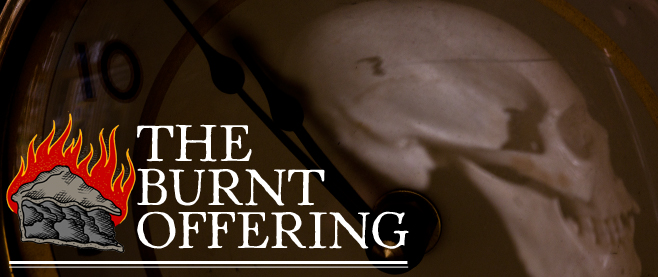
Three Billboards and the Farce of American Society
 Fairly early on in Three Billboards Outside Ebbing, Missouri, Frances McDormand delivers a cathartic and eviscerating monologue to a pompous priest. This shithead invited himself to her home to dress her down for shaming the town sheriff with her titular billboards. Her sushi-knife-sharp rebuttal to his presumed moral authority is exactly what I wanted when she walked into the room and, upon receipt, I was sure her victory could not last.
Fairly early on in Three Billboards Outside Ebbing, Missouri, Frances McDormand delivers a cathartic and eviscerating monologue to a pompous priest. This shithead invited himself to her home to dress her down for shaming the town sheriff with her titular billboards. Her sushi-knife-sharp rebuttal to his presumed moral authority is exactly what I wanted when she walked into the room and, upon receipt, I was sure her victory could not last.
Because despite the no-bullshit attitude McDormand wields as Mildred Hayes, an imperfect and ferocious mother whose daughter was raped and immolated and whose case was seemingly and quickly forgotten by the police, many movies reinforce the idea that righteous anger is a cancer and a strong woman must be made to see the harsh light of “civility.” But through this speech and afterwards, Three Billboards sets up such expectations like bowling pins only to hug the gutter, and by the end, leap into another lane entirely.
Three Billboards is gristly, darkly hilarious, and taut as a tripwire. It puts the viewer through more than a few scenes that play the heart like a drum, as Mildred abandons propriety in order to call out the ineptitude of the town police. And while it follows a somewhat predictable plot, as Mildred makes enemies out nearly the entire town (or at least the good ol’ boys who won’t have their sheriff buddy libeled and slandered), she neither backs down nor makes much actual headway, in as far as justice for her daughter is concerned. But then again, grief and justice are for the living. This is a film about a mother demanding the world acknowledge her suffering the only way she knows how, all presented through a sheen of realism that occasionally warps, with each actor stretching out just so subtly.
Sam Rockwell is impeccably infuriating as the practically rote racist idiot cop Dixon, a caricature of a Southern white man failing continuously upwards. He’s reading a letter from his dead mentor, an honorable cop who protected this sadist who apparently had deep fatherly feelings that he was unable to express, while oblivious to the building blazing around him. Dixon’s grief is so profound that his only response is pummel a man while the town watches, doing nothing. He is fired from his job, but never held accountable for the assault, the victim of which later shows Dixon the barest kindness, which doesn’t quite transform Dixon but cracks the window. There is an argument that feelings are more effective than facts in combating fascism on an individual level, which this movie posits against Rockwell’s monstrous Dixon, but is it enough?
The violence he causes is not addressed beyond his firing, but that which he receives is equally meaningless, taking a beating in order to capture some evidence to potentially find Angela Hayes’s murderer. And rightfully so—if six years (including one where he was held back, according to his whirlybird mother) at a police academy couldn’t set him up as a barely effective cop, why should we fall for the idea that this one redeeming act might? But we wanted to, on some level, at the very least to see one demon go down. Still, when that’s not enough Dixon starts to consider suicide, as violence is the only response he has to everything the world throws at him.
In particular, almost every man in this movie is the unspoken victim of patriarchal masculinity. Mildred’s surviving son at least barely addresses his emotions, though he rejects his mother’s (assumedly late) attempts at comfort. He holds a knife to his father’s throat as he prepares to pummel Mildred, who’s resigned to this typical response to her instinctual needling. Then they play family for a small moment as they reset the table and chairs so violently tossed a second ago, until the abusive ex-cop strolls away with his 19-year-old helium-filled girlfriend while spitting a final invective at Mildred. But even that girlfriend, played for laughs, later dispenses a banal and effective wisdom that even Mildred finds solidarity with her for a moment. For each character is drawn in gray. There are no heroes in this movie, just a community of cracked and broken people squirming in the margins.
Which certainly includes Mildred, who employs a minor puppet show with her slippered feet about getting all those motherfuckers. At every point in the movie where we expect her to stand down (or get knocked down) from her crusade, she clicks the gas a few notches higher. This plays through the very end, a deliberate set of feints and nods that straight through the last lines keeps us dizzy trying to interpret these events and characters. A variety of emotional beats are torqued through glib resolutions of the tensions—we explode, pushed to the edge in every way, but those explosions are always both thrilling and fruitless. Three Billboards serves every shade of violence, honorable and horrific, and all to the same destructive, useless end. In between we find the small redemptive gestures to be both far from enough and all we have to hold on to.




